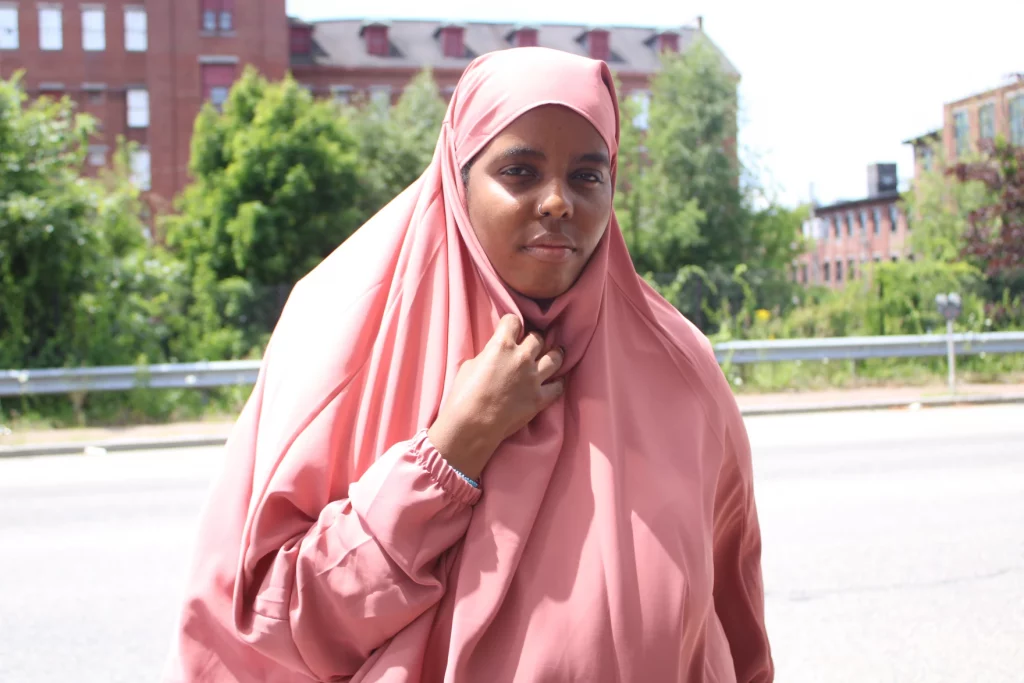Members of Lewiston’s Somali community are mourning the death of 17-year-old Sahal Muridi, whose body was found Sunday night by police who were responding to a 911 call reporting that shots had been fired. The incident is part of what police said is an uptick in violence across the city, and there are fears that young Somali-Americans are getting swept up in it.
Zakariah Aden grew up in Lewiston, and was a longtime family friend of Sahal Muridi.
Aden said the two had been especially close since middle school. They would hangout, play basketball, and for a while they worked the same shift at Taco Bell.
Aden said Muridi had a quiet and uplifting presence — and pushed his peers to dream bigger.
“He always made me want to be like, doing the best at what I’m doing, every time,” Aden said.
Little is known about what actually happened leading up to Muridi’s death. The medical examiner’s office is withholding autopsy information per orders of the state Attorney General as the case is still under investigation.
Aden said growing up, he never questioned whether it was safe to walk around town or go meet up with friends at the park. Now, he said, shootings have become more common, and he thinks twice before going out.
“Is today the right day to go? Cause you don’t want to get caught up wrong place wrong time,” he said.
The weekend of Muridi’s death, Lewiston Police responded to two other reports of gunfire in town, part of a broader trend of increased gun violence in the area, a trend that concerns many within the Somali community.
At the office of Maine Immigrant and Refugee Services downtown, executive director Rilwan Osman was greeting a gaggle of clients on a recent afternoon.
In the months before his death, Muridi was a youth mentor here, and Osman said as a new generation grows up steeped in American culture, there is increasing anxiety about seeing them getting swept up in gun violence.
“This is a crisis […]everywhere in the country, having access to to some of these guns, where they can easily get it on the street, is the biggest concern,” Osman said.
It’s especially troubling for many parents in the community, who came to the U.S., and Lewiston in particular, seeking safety.
“The reason why we’re here a lot of us are here is because of gun violence in our home country. And definitely parents don’t want anything to do with that,” he said.
“We can’t keep living in this constant cycle. Something needs to happen,” said Amran Osman — no relation to Rilwan — who runs Generational Noor, an organization focusing on youth mental health and substance abuse issues.
She’s organizing a community meeting slated for next week, with the goal of including more youth perspectives in conversations about gun violence.
She said she wants to move swiftly, while attention is still focused on Muridi’s death.
“Youth are not having the mental health resources, where they’re able to talk about what they’re going through. And they’re able to understand that like, okay, these guns are not going to help you,” Osman said.
For now, Muridi’s friends said they are still trying to process his passing.
Seventeen-year-old Ahmed Aden said losing Muridi was like losing a sibling.
“He made me feel like a brother. He made me feel loved. He made me feel like someone that’s got someone there,” Aden said.
Aden said he and Muridi had been planning to launch a podcast together, to discuss current affairs.
He said one of the key issues Muridi wanted to focus on was gun violence in Lewiston.
The first recording session was supposed to be this week.
By Ari Snider
Source:wardheernews.com
